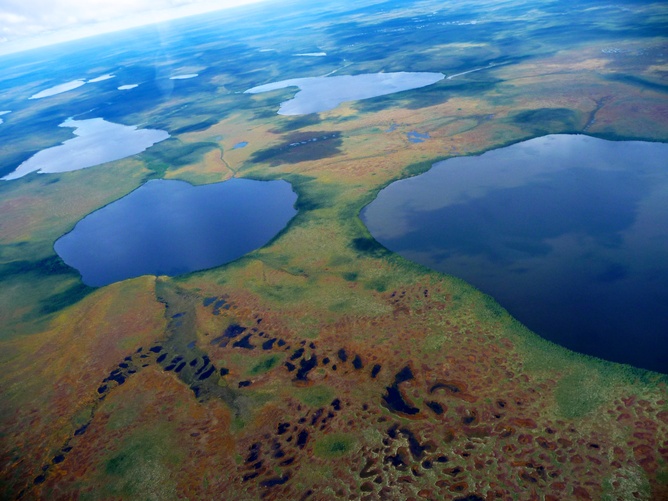Lakes of the Hudson Bay Lowlands, in northeast Canada, are showing evidence of abrupt change in one of the last Arctic regions of the world to have experienced global warming, according to Canadian research published in the Proceedings of the Royal Society B journal.
The research team consisting of Kathleen Rühland, John Smol, and Neal Michelutti from Queen’s University Ontario, Andrew Paterson of Ontario’s Ministry of the Environment, and Bill Keller from the Laurentian University Ontario, retrieved sediment cores from lakes around the western shoreline of Hudson Bay and looked for changes in the microscopic algae that settle at the lake bottom after death.
These algae, known as diatoms, are at the base of the food chain and are an important component of lake ecosystems. When they die and fall to the lake bed, they leave behind an environmental archive in the sediment layers that continually accumulate year after year. By examining the changes through time, researchers can trace the environmental history of the region.
WipeterDiatoms, tiny phytoplankton that hold clues to the climate of the past.
